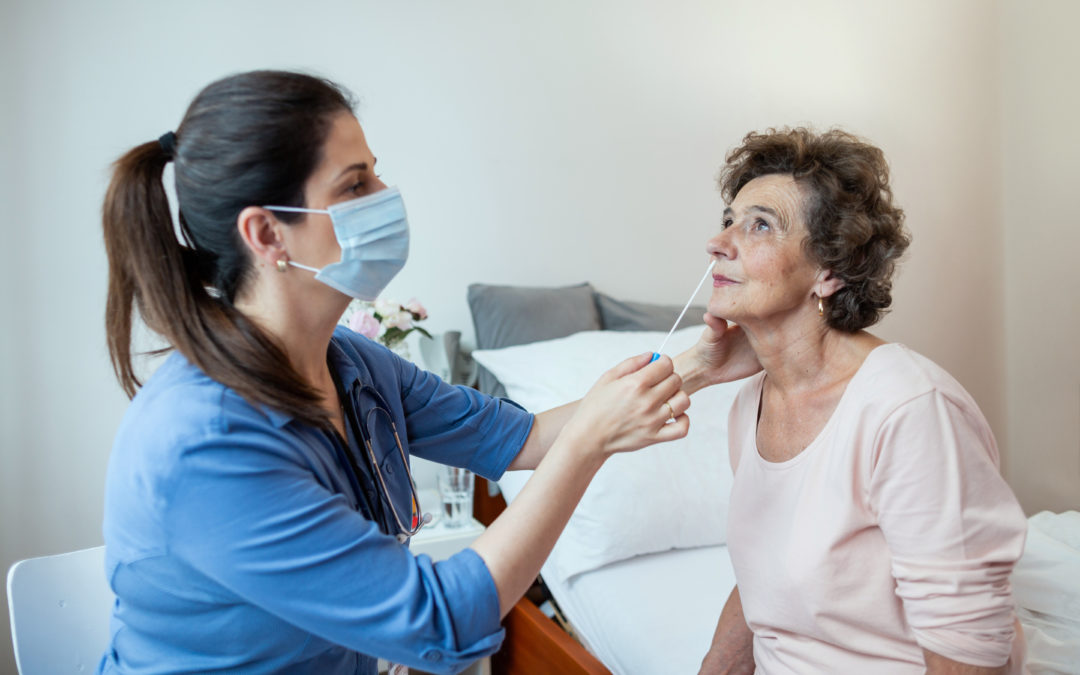Nursing Home Residents Yet to Receive Vaccine Boosters
According to a recent Philadelphia Inquirer article, tens of thousands of Pennsylvania nursing home residents are behind on their COVID-19 booster shots. While the latest bivalent booster shot was developed to better protect against the most recent and prevalent COVID strains, and while elderly nursing home residents rank among the most vulnerable to developing serious, and even deadly, symptoms with COVID, Pennsylvania nursing home resident vaccination rates rank lower than 25 other states and territories in the nation.
According to the article, federal data shows the following for Pennsylvania’s nursing home residents with respect to COVD protections:
- Percentage of Pennsylvania nursing homes where the majority of residents have not received the latest booster shot: 40
- Percentage of Pennsylvania nursing homes in which 75 percent of residents are fully current with vaccines: 30
- Number of Philadelphia nursing homes in which 75 percent of residents are fully current with vaccines: 25
According to a CNBC article, the national percentage of nursing home residents who have received an omicron booster is not much higher: fewer than 50 percent. While 86 percent of nursing home residents are fully current with primary COVID vaccines, just 47 percent of them have received all of their recommended boosters. Dr. Ashish Jha, White House Covid taskforce leader, says the majority of current COVID deaths include elderly persons who are not up to date on their vaccinations and don’t receive treatments like Paxlovid in circumstances of breakthrough infections.
Data from the Centers for Disease Control and Prevention shows COVID cases as rising by 65 percent in nursing homes from mid-November to early December, and then dropping by 11 percent the next week. Nursing home COVID deaths rose 25 percent nationwide. According to the Inquirer article, 200 to 300 nursing home residents nationwide have died from COVID each week since the end of October.
The Centers for Medicaid and Medicare Services report that, since the start of the pandemic, over 161,000 nursing home residents have succumbed to COVID. Nearly three-quarters of the nation’s COVID deaths have been among seniors aged 65 or older. With thousands of nursing home residents yet to receive vaccine boosters and an impending winter COVID wave, residents should prioritize getting booster shots to avoid another high wave of nursing home deaths.
During the height of the coronavirus pandemic, various issues amounting to nursing home malpractice—some that have plagued the industry since long before COVID—prevented nursing homes from protecting fragile nursing home residents, including the following problems:
- Staffing Shortages: Poor staff-to-resident ratios are illustrative of nursing home malpractice as staffing directly impacts a home’s ability to manage the spread of infection and disease. Nursing home staffing was low long before the pandemic, plummeted further during the pandemic, and continues to be a problem in the industry today.
- Poor Infection Prevention, Response, and Mitigation: From a lack of adequate PPE and COVID tests, to not properly isolating infected individuals, to poor pandemic hygiene and disinfection practices and contract tracing failures, nursing home infection practices during the pandemic reflected repeated instances of nursing home malpractice.
- Poor Regulation: In 2020 the federal government cut facility inspections, reduced health violation fines, and replaced certified aides with lower-trained temporary nursing assistants.
- Private-Equity Ownership: For-profit companies run 70 percent of American nursing homes, and are known to engage in acts of nursing home malpractice that have resulted in poor quality care. A New Jersey study of COVID-19 in private equity-owned nursing homes found that COVID nursing home infection rates were 30 percent higher, and COVID deaths 40 percent higher, than the state average. And the White House recently declared that residents of private equity-owned nursing facilities have a greater likelihood of experiencing nursing home malpractice and wrongful death.
Even properly implemented protective measures were insufficient to fully protect vulnerable elderly residents living in close proximity to one another during the worst months of the pandemic, says the Inquirer. Only the introduction of the vaccine in late 2020 caused death rates among nursing home residents to begin dropping. And considering the quickly waning immunity of elderly residents, boosters should be prioritized for them to prevent the risk of serious illness.
Defending Against Nursing Home Malpractice and Wrongful Death
As a nursing home malpractice and wrongful death attorney, Brian P. Murphy tirelessly fights to protect the health and safety of residents living in Pennsylvania or New Jersey nursing homes. Years of experience as a wrongful death attorney fighting negligent Philadelphia/PA and NJ nursing homes has led Brian Murphy to successfully resolve numerous nursing home malpractice cases. Should you find yourself needing to contact a nursing home malpractice and wrongful death attorney, call Brian Murphy today to discuss your legal options.







